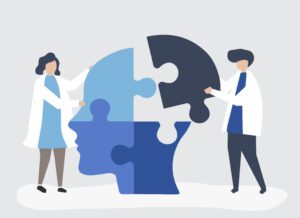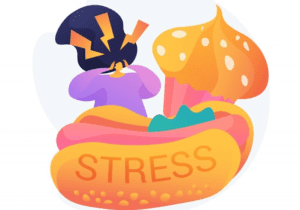How Psychoeducational Assessments Help Shape Better Learning Plans in School
This article has been researched and written by Sara Caroppo. AI has not been used in producing this article.
No two children are the same. Every child brings a unique mix of strengths, challenges, and ways of learning into the classroom. Two kids might both struggle with reading, yet for completely different reasons. That’s where psychoeducational assessments step in—they give us a full picture of how your child thinks, learns, and even feels, looking at everything from their cognitive and academic skills to their emotions and behaviors. With those insights in hand, teachers, specialists, and families can craft a learning plan that really fits your child. At ClearMinds Center, we believe understanding your child’s individual psychoeducational profile is the first step to helping them shine.
What Exactly Is a Psychoeducational Assessment?
Think of a psychoeducational assessment as a deep-dive into how your child learns and thinks. We don’t just glance at report cards or classroom behavior—we pull together standardized tests, in-the-moment observations, and friendly chats with your child (and you!) to get the full picture. Here’s what we look at:
Imagine watching your child as they tackle a new story—do they pick up unfamiliar words like little detectives, or do they pause to puzzle out each one? That’s us getting a feel for how they think. Then there’s the way they dive into reading or math: maybe they sail through a chapter book but hit a wall with word problems, or they love counting games but stumble over spelling tests.
You’ll see how your child tackles step-by-step tasks: do they jump right in—gathering their markers, sketching a quick outline, and powering through—or do they hesitate, wondering where to begin? And just as important, we tune into their mood: are they excited and ready to go, or does a bit of jitters hold them back? Those little everyday moments show us exactly where they shine and where a helping hand can make all the difference.
Leveraging Results to Empower Your Child
Armed with detailed assessment results, educators collaborate to design an individualized education plan tailored to each learner’s needs. Key elements often include:
- Hands-on learning techniques: not all children learn through reading and writing. Many children respond better to a kinetic or “hands on” approach. For example, your child may engage more when they can move letter tiles around instead of staring at flashcards.
- Customize technology for learning: some children need technology to assist with their learning. For example, they may respond better to reading with an app that reads the word out loud – highlighting each word as it’s spoken. Others might need to write out their written assignments with a computer. The idea is to find what works best for your child and their specific needs.
- Classroom accommodations: a psychoeducational assessment can identify special in-class accommodations to assist with their learning and processing. For example, they may need extra time for tests, to sit in the front of the classroom, or require breaks to get their wiggles out.
When your child’s support plan flows directly from their own strengths and challenges, there’s no more guessing. Teachers know exactly how to help, you see progress happen, and your child gets the boost they need to thrive.

Partnering with Schools and Families
Successful learning plans depend on collaboration. At ClearMinds Center, we work directly with parents, teachers, and school psychologists to:
- Review and interpret assessment findings together
- Prioritize goals that meet both academic standards and personal growth
- Adjust strategies as the student develops new skills or encounters fresh challenges
Our ongoing consultation ensures that as a child grows, their learning plan evolves—keeping pace with changing needs and fostering continual improvement.
Unlock Your Child’s Potential
Every student deserves a roadmap to success that reflects their individual learning journey. Psychoeducational assessments provide the clarity needed to build these personalized plans, transforming uncertainty into targeted action and real progress. If you’re ready to discover how a psychoeducational assessment can shape a brighter educational path for your child, contact ClearMinds Center today.
Let’s work together to unlock your student’s fullest potential.
5 Simple Mental Health Practices for Your Everyday Life: Nurturing Your Body & Mind
In today’s fast-paced world, it’s becoming increasingly evident that we need to place our mental health at the forefront
Ways to Reduce Anxiety in 2024
As we say farewell to 2022 and usher in the New Year, we look towards the future. With New Year’s resolutions on the docket, many of us are striving to achieve a calm life …
Navigating Compassion Fatigue in the Digital Age: A Call to Prioritize Mental Well-Being
Amid the constant stream of information and images that flood our screens, the toll on our mental well-being can be …
The Link Between Anxiety and Overeating
All of us have encountered moments of stress and unease throughout our lives. These feelings of anxiety not only bring…
10 Steps To Fix A Toxic Relationship
Every relationship has its fair share of ups and downs, but when toxicity creeps in, it can become a serious challenge. Toxic relationships can be emotionally draining and detrimental to our overall …
Exploring the Benefits of EMDR Therapy for Anxiety and Depression
Anxiety and depression are two of the most common mental health disorders worldwide, affecting millions of people every year. While traditional talk therapy and medication can be …
Health Effects of Untreated Depression
It’s very common to feel sadness at one point or another in our life. Depending on your specific circumstances, you may even feel …
Psychologists vs. Psychiatrists – What’s the Difference?
Clients shouldn’t have to jump through hoops to understand who the perfect candidate is for treating their emotional and/or behavioral struggles. Yet, understanding the type of provider you should see during …
Gentle Parenting: What is it and How to Try it Yourself
When it comes to raising children, no one has all the answers. Every parent and child have unique challenges and needs. Navigating these individual circumstances along with ever-changing environments, such as school …
How to Improve Your Relationship with Your Children – A Psychologist’s Guide
The modern family’s lifestyle leaves us shuffling from school to sports practice, family events, visiting friends, and everything in between. As society evolves to become more on-the-go and technologically advanced, w…











